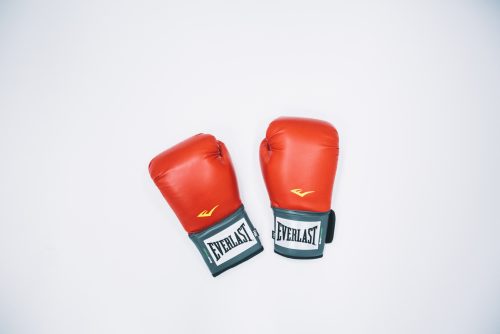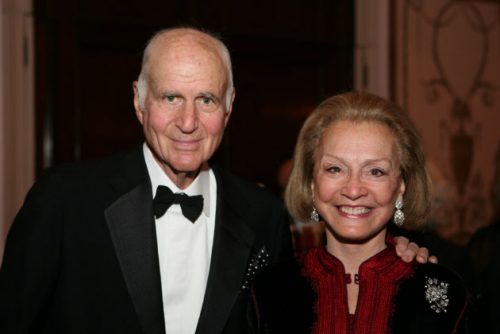When CalTech announced a $7.8 million gift last week to help fund space technologies research, the press release read like a familiar script. Three million dollars to fund an endowment for space research (such as an extraterrestrial energy beam that would refuel aircraft midflight), $3 million to establish a bevy of graduate fellowships to "help attract the best people in the world," and $1.8 million towards an “outreach program” aimed at engaging youth from “disadvantaged backgrounds.” It had all the hallmarks of a modern-day major gift: cutting-edge research, academic longevity, and even the nod to P.C. sensibilities. The CalTech labs get to continue pushing the final frontier and two California philanthropists get to bask in the warm glow of tenured gratitude.
And in many ways, it is rather an uninteresting tidbit of philanthropic news. But the case raises interesting – indeed fundamental – questions about the nature of what has been described on this very blog as “philanthrolocalism,” which stresses “a smaller, humbler philanthropy.” Jeremy Beer first introduced the idea in an essay for the Fall 2014 issue of Communio (reprinted here at Philanthropy Daily) and Bill Schambra expanded on the theme in a May 2014 essay for this blog. Schambra and Beer lay out the ways in which philanthrolocalism prioritizes old-style charity towards neighbors and native places over “ideological ambitions to remake the world,” which they see behind much of Big Philanthropy (see Bill Gates, George Soros, Bono, et al.). There is much in the idea of philanthrolocalism that is right and worthwhile, of course, starting with its metaphysical and anthropological presupposition that “we are not our own” and continuing through to a principled moral particularism that stresses the obligations of caritas over managerial “excellence.” Indeed, anyone awash in the bland corporate-ese of Big Philanthropy, which strives to “synergize collective impacts through collaborative outcomes-based metrics” (Schambra’s winsome formulation) quickly grows tired and tiresome.
But the CalTech space technology donation, and all space-oriented philanthropy for that matter, begs a very prickly question for the philanthrolocalists. Namely, whose local community is served by space exploration? That is, if we agree space exploration is a worthwhile end, it would seem the building blocks of philanthrolocalism—tight-knit, small-scale communities of mutual charity and interpersonal relationality—are ill-suited to produce the astronauts, astrophysicists, and theoretical engineers who will chart a path through the depths of space. Indeed, there could be no place less local than space—it is just “out there,” the home of none of us. Yet—simultaneously, paradoxically—we are all drawn to space, we all gaze up at the night sky and dream of the Great Beyond that escapes our comprehension. It is both impossibly distant and constantly imminent.
But maybe philanthrolocalism doesn’t need space exploration, maybe it’s not a worthwhile goal in the first place. I’m not aware of such an argument having been made publicly, but I imagine they would focus on the alleged irresponsibility of running off into space when there are problems that need solving in your own backyard. Christopher Nolan’s recent space epic Interstellar plays with these similar themes. But since philanthrolocalism starts with the recognition that “we are not our own,” it necessarily begs the question of whence we came? And man seeks (and is increasingly coming to find) an answer to that question in the stars. It seems insufficient to simply say we are the result of the parents that raised us, the teachers that schooled us, and the environments that defined our scope of perception; surely these things explain a great deal about man as a sociological animal but fail to exhaust man’s metaphysical or even physical self-understanding. Is there not a real, concrete way in which space contains actual insight about our shared origins and common destiny? Is it not both the most romantic and most practical frontier for us to conquer?
It would seem that philanthrolocalists either need to make room in their theory for space exploration, or that they need to condemn such exercises as examples of those “ideological ambitions to remake the world,” in this case by escaping it. Since Beer blames “geographic mobility” in part for the depleted vitality of American towns and the aggrandizement of social injustice, it’s hard to imagine his fellow philanthrolocalists welcoming the prospect of easy space travel. Likely they would respond that the evidence is already piling up that space exploration is just a dubious sideshow for the mega-rich, with Richard Branson, for example, having spent millions of dollars, decades of effort, and since November of 2014 at least one life in his quest for the stars.
But what then of the proud tradition of American space exploration? Of NASA, Neil Armstrong, and John F. Kennedy’s daring push to reach the moon? What of the inherent value in discovery and exploration? Surely space programs can’t simply be locally funded, and as surely they must rely in part upon the sorts of scientific metrics and benchmarks that philanthrolocalists so despise in Big Philanthropy. Perhaps the philanthrolocalist response to this challenge is to cede this particular authority to the federal government, but then we are confronted with self-contradiction as localism feeds the growth of the technocratic state. And anyways, the federal government has for the past several years steadily cut its funding to NASA, so the task of financing new research will increasingly fall to donors and philanthropic foundations.
Several things are clear: we have an inveterate desire to reach for the stars; this desire seemingly lies at odds with a principled attachment to our particular time, place, and culture; and this contradiction will only become more apparent as philanthropy increasingly funds space exploration and technology R&D. I submit no easy answers to this problem, but simply wish to raise it here for those who have thought more deeply about philanthrolocalism than I have. Peter Lawler has suggested that amidst these debates we must remember that “the earth is not simply our true home.” This seems an important insight, whether for the philosopher, the physicist, or the philanthropist.






